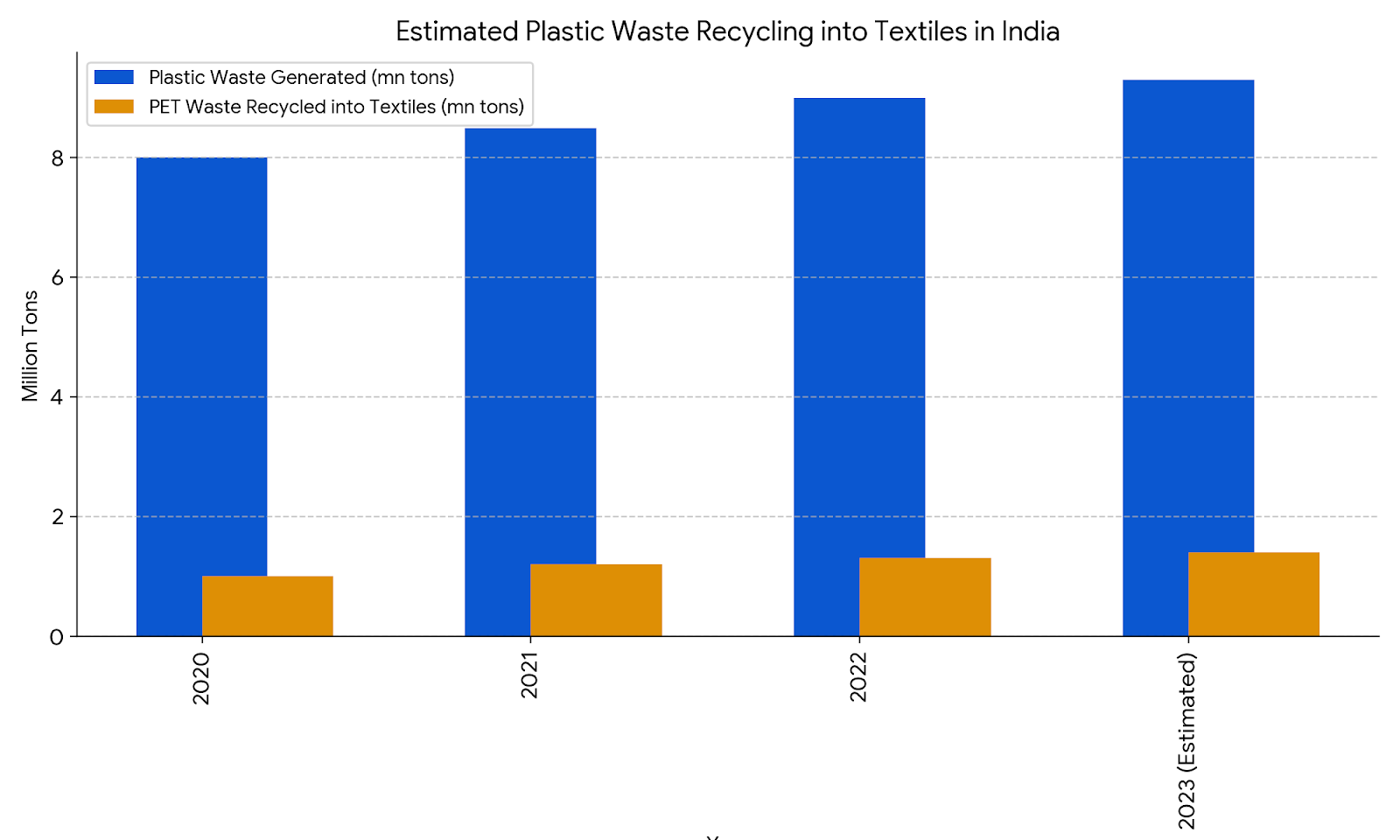India tops global plastic pollution, but textile industry offers recycling hope
A recent report by Nature has put India in the spotlight for generating the highest amount of plastic pollution globally, releasing an estimated 9.3 million tonnes of plastic waste annually. While this is cause for serious concern, the country's burgeoning textile industry is stepping up to offer a glimmer of hope by increasingly turning to recycled plastic, particularly in the form of recycled polyester (rPET).
Recycling plastic waste into textiles
The textile industry has emerged as a significant consumer of recycled PET bottles, primarily due to the growing demand for sustainable fashion. The following table provides a glimpse of the current recycling landscape.
Table: India’s recycling landscape
Parameter Value
Annual PET bottle consumption in India 5 million tonnes
PET bottles recycled annually 3 million tonnes
Recycled PET used in the textile industry 1.5 million tonnes
Growth rate of recycled polyester in textiles 15% per annum
Although official data is scarce, it's estimated that India currently recycles approximately 15 per cent of its PET waste into textiles. This is a significant increase from previous years, driven by growing awareness of sustainability and a push from global brands to incorporate more recycled materials into their supply chains.
Meanwhile India's infrastructure for recycling plastic waste into textiles is expanding rapidly. Several major textile companies have invested in state-of-the-art recycling facilities, and smaller-scale operations are springing up across the country. This growth is due to both domestic demand and export opportunities, as the global market for recycled textiles continues to expand.
Infrastructure and bottlenecks
While progress is encouraging, bottlenecks and challenges remain. These include:
• Collection & sorting: Inefficient waste management systems and a lack of proper segregation at the source make it difficult to collect and sort plastic waste suitable for recycling into textiles.
• Quality concerns: Contamination and degradation of plastic waste can affect the quality of recycled fibers, limiting their applications in certain high-value textile products.
• Technology gaps: The adoption of advanced recycling technologies, such as chemical recycling, is still limited, hindering the full potential of plastic waste recycling.
Table: Estimated plastic waste recycling into textiles in India
Year Plastic waste generated (mn tons) PET waste recycled into textiles (mn tons) Percentage of PET waste recycled
2020 8 1 12.50%
2021 8.5 1.2 14.10%
2022 9 1.3 14.40%
2023 (Estimated) 9.3 1.4 15.00%
Despite challenges, the future of plastic waste recycling in India's textile industry is promising. With increasing government support, technological advancements, and growing consumer demand for sustainable products, the sector is poised for significant growth.
The government for example has introduced several policies and schemes to promote plastic waste recycling and the circular economy. These initiatives are expected to further boost the recycling infrastructure and create a more conducive environment for the textile industry to utilize recycled plastic.
Furthermore, continued advancements in recycling technologies enables the industry to process a wider range of plastic waste and produce higher-quality recycled fibers, expanding their applications in various textile products.
And growing consumer awareness of sustainability and the environmental impact of plastic waste is creating a strong market pull for recycled textiles. This encourages brands and manufacturers to incorporate more recycled materials into their products, further driving the growth of the recycling industry.
The textile industry, with its increasing reliance on recycled polyester, has a unique opportunity to drive positive change. By collaborating with recyclers and investing in sustainable practices, the industry can contribute significantly to reducing India's plastic footprint while meeting the growing demand for eco-friendly fashion.


October 24, 2024
View: 227
